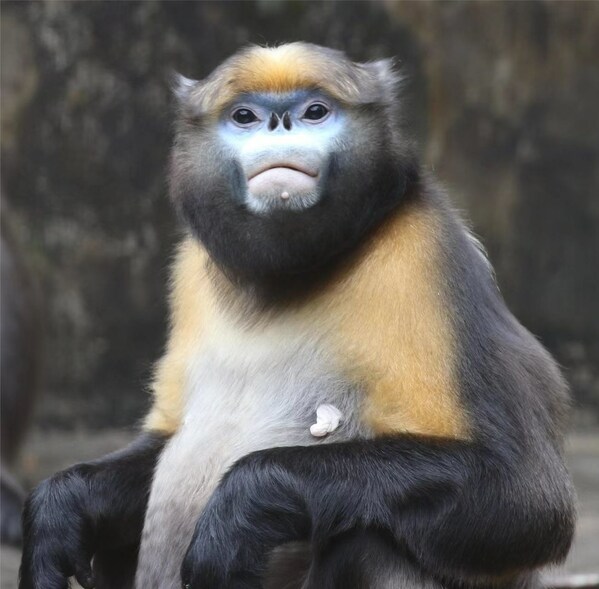GUIYANG, China, July 5, 2023 /PRNewswire/ -- A news report by Huanqiu.com
"If I'm not in the forest, I'm on my way to it." That's what Ran Jingcheng often says. Ran is the President of the Guizhou Academy of Forestry.
Ran's act of running between different nature reserves in Guizhou has earned him the nickname "the Running Man". In response, he commented, "The Running Man of Guizhou needs to cover every inch of the forests within."
Located in the upper reaches of the Yangtze River and the Pearl River, Guizhou is situated in the subtropical plateau mountainous area with numerous and continuous mountains. The complicated landscape of mountains, waters, forests, fields, lakes, grassland, and the karst hills in the south has endowed the place with rich biodiversity.
Regarding the protection and utilization of biodiversity, Guizhou has formed a unique "Guizhou Sample" based on constant exploration and experience summary. The species number of wild animals in Guizhou ranks third nationwide, including 197 species (categories) in the latest list under national key protection; In addition, the identified biological species here number 24,547, ranking 4th in China.

The Guizhou snub-nosed monkey is under top-level protection in China and is listed as an endangered species by the International Union for Conservation of Nature. (Photo by Ran Jingcheng)
Inspired by this mysterious land, Ran Jingcheng was admitted by the Department of Wildlife, Northeast Forestry University, as he desired. Upon graduation, he came back to Guizhou and embarked on a romantic journey among the mountains.
In Maolan, the core area of South China's Karst World Natural Heritage, Ran Jingcheng encountered fascinating species on the earth's surface, such as the paphiopedilum, handeliodendron bodinieri, the panda of plants - kmeria septentrionalis, and other rare plants.
Characterized by many underground streams and caves, the karst area offers an interesting underground world of life to Ran, who discovered the goniurosaurus liboensis on his first trip to the caves. Ran also discovered blind fish in the water and bats in the cave top. For the majority of the time, within a year, Ran was in the forest. He said, "These little guys were never afraid of me, and the snake even slept on my belly."
Nature has not only wonders but also dangers. During the several years of fieldwork, Ran was also faced with beasts, such as vipers, black bears, and wild boars. Once, a cobra sprayed venom onto his face during a field exploration. This accident rendered his eyes permanent injury, and his vision is still blurred. But the appeal of the mysterious nature drives Ran always on the path of biological study.
For over three decades, he has been working in fields. He climbed one-third of the mountains and investigated several hundreds of caves in Guizhou. Besides, he has been to all the forest areas in Guizhou; be it the top of Fanjing Mountain, the shore of the grass sea, the oasis of Danxia landforms, or the stone desert, he has left his footprints there.
Having seen the most beautiful sceneries, Ran ponders over how humans should cope with nature and gives his answer, "Humans are a part of nature. If humans can live in harmony with other animals and plants, does they still need our protection?"
For thirty years, Ran has been protecting and studying biodiversity, devoting himself to the harmonious coexistence between man and nature. By delivering lectures, speeches, and nature classes while undertaking study tours, he has held over 100 theme activities and organized, compiled, and published relevant books on science popularization. Through concrete actions, he hopes to inspire more people to get involved in the cause of biodiversity and nature protection. In his opinion, man should never take a supreme standing to look down on natural species; instead, we should treat them on an equal footing.
On the path of ecological protection, Ran said, "Standing in front of a 1000-year-old tree, I'm but a baby. To a 300-year-old tree, I'm only 18. So, of course, I'd keep running!"